Have you ever caught yourself thinking…
“Why am I still struggling with this?”
“Why do certain dates or songs trigger me out of nowhere?”
“Am I just being dramatic? Shouldn’t I be over this by now?”
If those thoughts have swirled through your mind after having an abortion, you’re not alone—and you’re not crazy.I want to introduce you to a term that changed my life (and my healing): Post-Abortion Syndrome, sometimes referred to as Post-Abortion Stress Syndrome, or PASS.
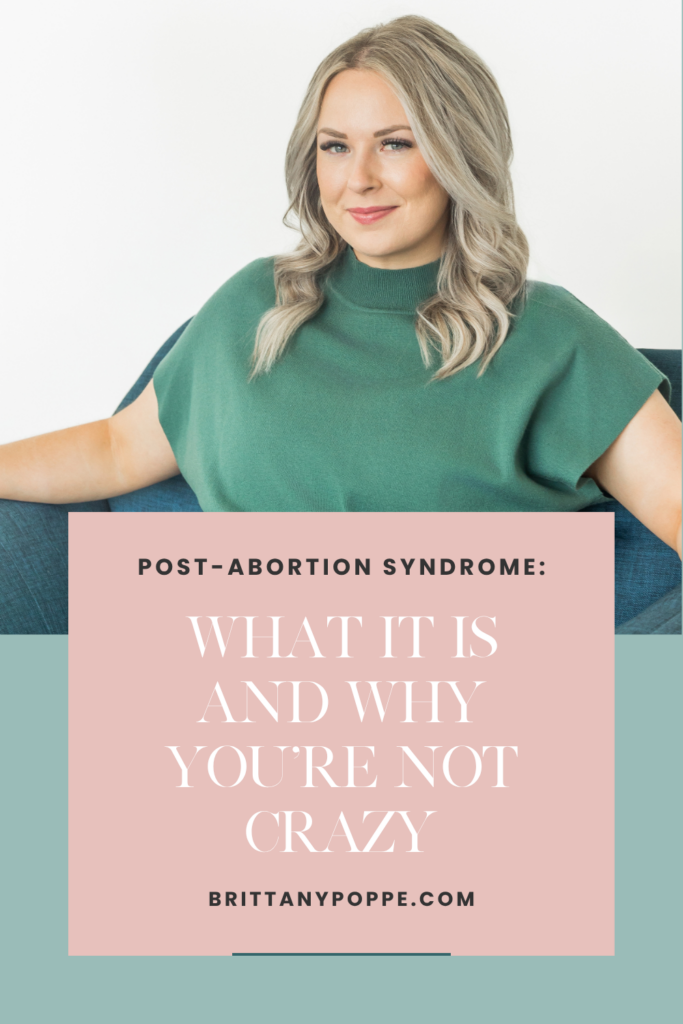
So What Is Post-Abortion Syndrome?
Post-Abortion Syndrome is the emotional, psychological, and even spiritual response many women experience after abortion. While it’s not formally recognized as a medical diagnosis, the symptoms mirror those of PTSD—and they’re very real.
Symptoms may include:
- Sudden mood swings or irritability
- Anxiety or panic attacks
- Overwhelming shame or guilt
- Trouble bonding with children or partners
- Depression, isolation, or numbing behaviors
- Avoidance of anything that reminds you of your abortion (doctor’s offices, ultrasound photos, pregnancy announcements, etc.)
- Anger outbursts
- Intrusive thoughts or flashbacks
When I first came across a list like that, it was like reading a page straight out of my journal.
I remember sitting there stunned. “Wait… all of these things I’ve been struggling with… they’re connected to my abortion?”
No one had warned me about any of this. And that felt like a betrayal. I hadn’t been given the full truth—and now I was left to carry the weight alone.
Why PASS Can Look So Different for Every Woman
Not every woman who has an abortion will experience PASS—and those who do might experience it in completely different ways.
Why? Because we all respond to trauma differently.
Some women may feel nothing for years, and then a due date or a comment or a sermon triggers everything. Others might feel the weight almost immediately. Still others might not even recognize what they’re feeling as grief—because culture told them abortion would bring relief.
The point is: your grief is valid, no matter what form it takes.
And there’s no timeline for healing.
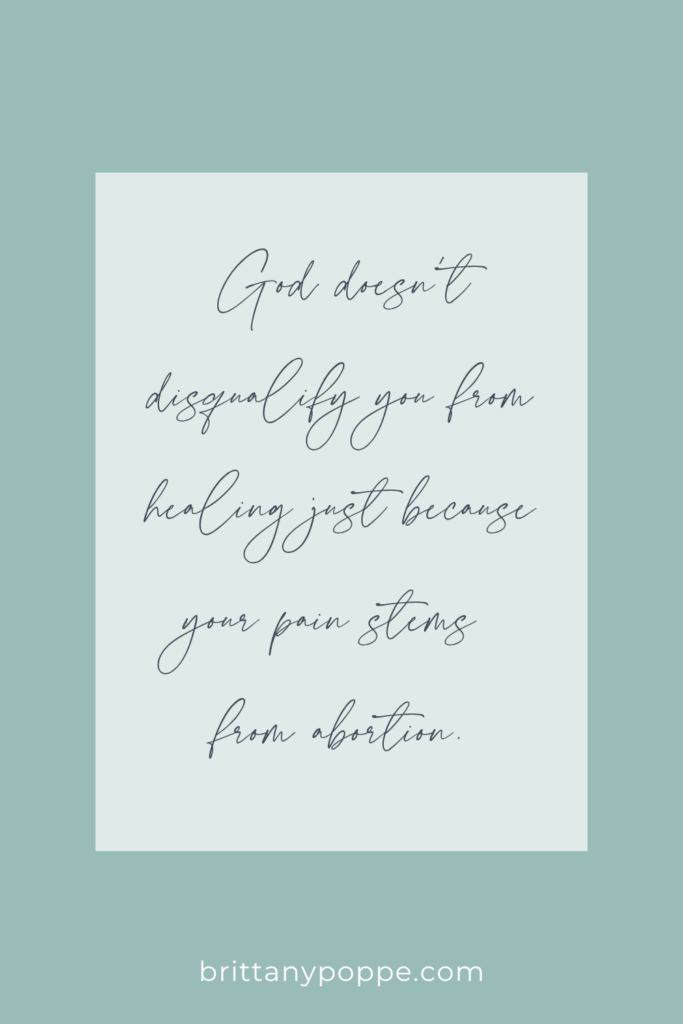
The Truth You Need to Hear: You’re Not Broken. You’re Wounded.
One of the lies the enemy loves to whisper to post-abortive women is, “This is your fault. You made your bed, now lie in it.”
But here’s the truth:
Yes, abortion was a decision. But you were also likely misinformed, rushed, scared, or pressured. And more importantly—you are still a daughter of God, still deeply loved, and still worthy of healing.
God doesn’t look at you and see someone disqualified.
He sees a woman who’s been through pain—and who’s ready for restoration.
So Can You Heal From Post-Abortion Syndrome?
Yes. Absolutely yes.
I won’t lie and tell you it’s easy or instant.
But with the right tools, supportive community, biblical truth, and compassionate guidance, you can absolutely live a full, joy-filled life on the other side of this.
Some steps you can take today:
- Acknowledge your pain without shame.
- Seek community (you are NOT the only one walking through this).
- Work with someone who understands abortion trauma through a biblical lens.
- Get curious about your symptoms. Instead of asking “What’s wrong with me?” ask “What is this trying to tell me?”
In my Abortion Recovery Breakthrough Coaching, I walk women through specific tools for grief, anger, triggers, intimacy struggles, and more. Because this isn’t just about managing symptoms—it’s about getting to the root and letting Jesus tend to it with truth and tenderness.
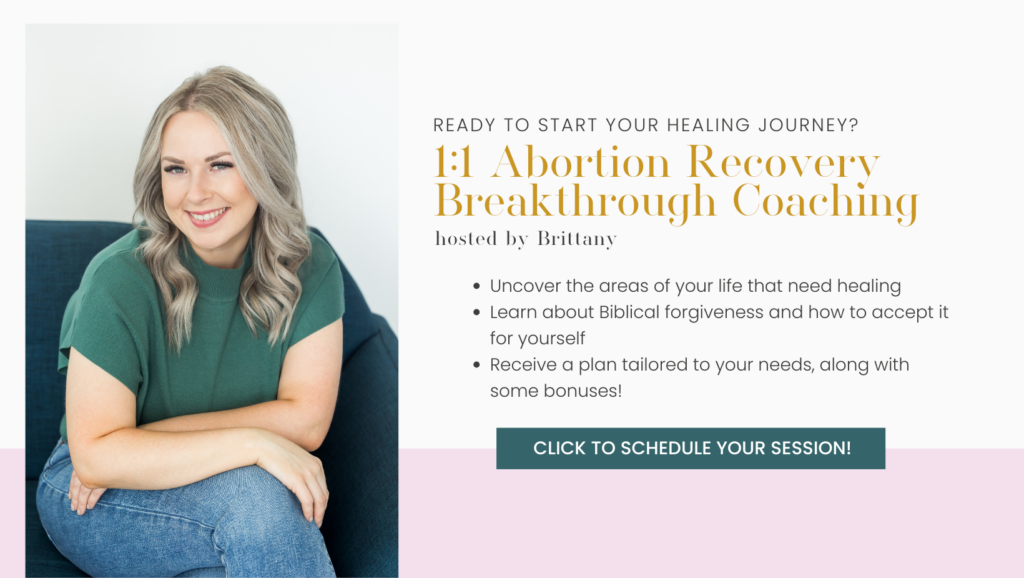
Final Thought
If you’ve been wondering why you’re still struggling, this is your permission to stop blaming yourself and start healing—with God, with grace, and with someone who gets it.
You’re not too far gone.
You’re not too messed up.
You’re not crazy.
You’re just carrying pain that was never acknowledged.
But it can be.
And healing is possible—one step, one prayer, and one layer at a time.
Pin for reading later!
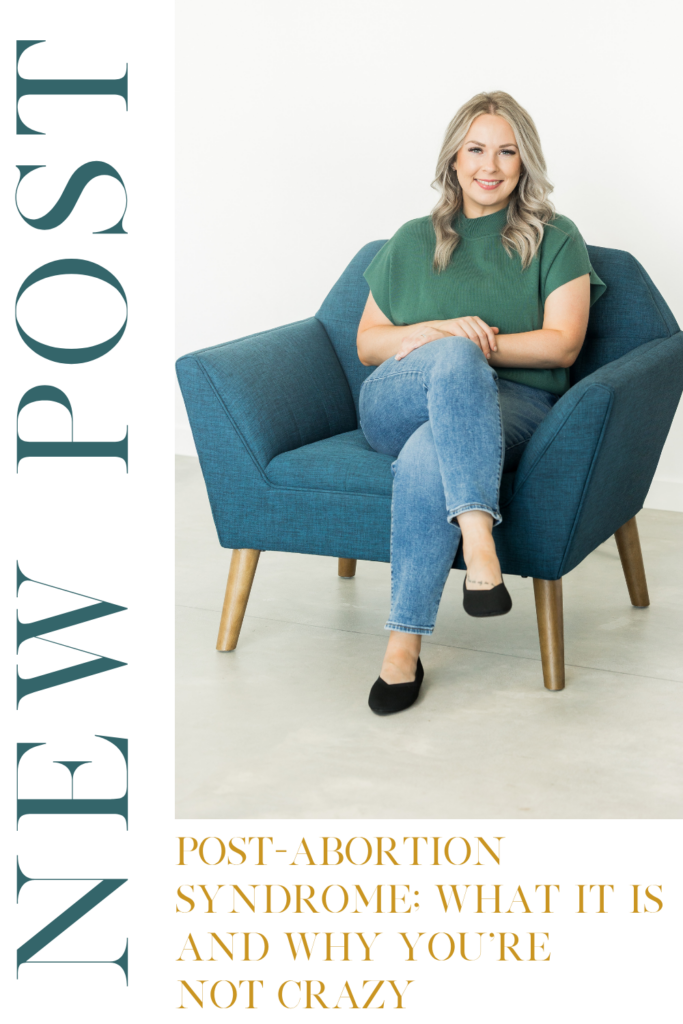
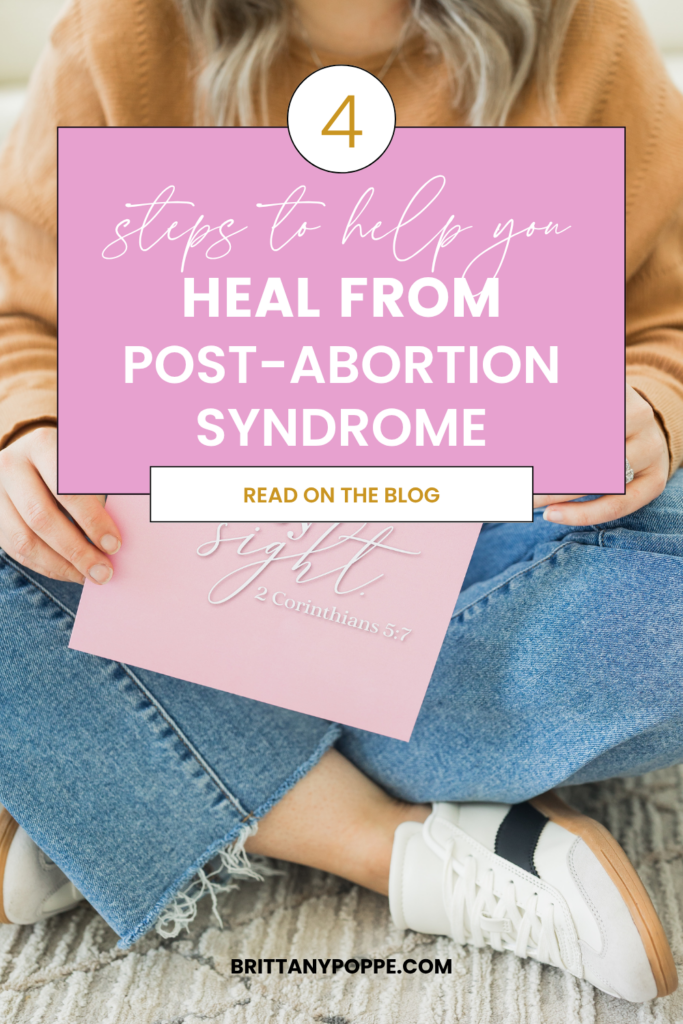
View comments
+ Leave a comment